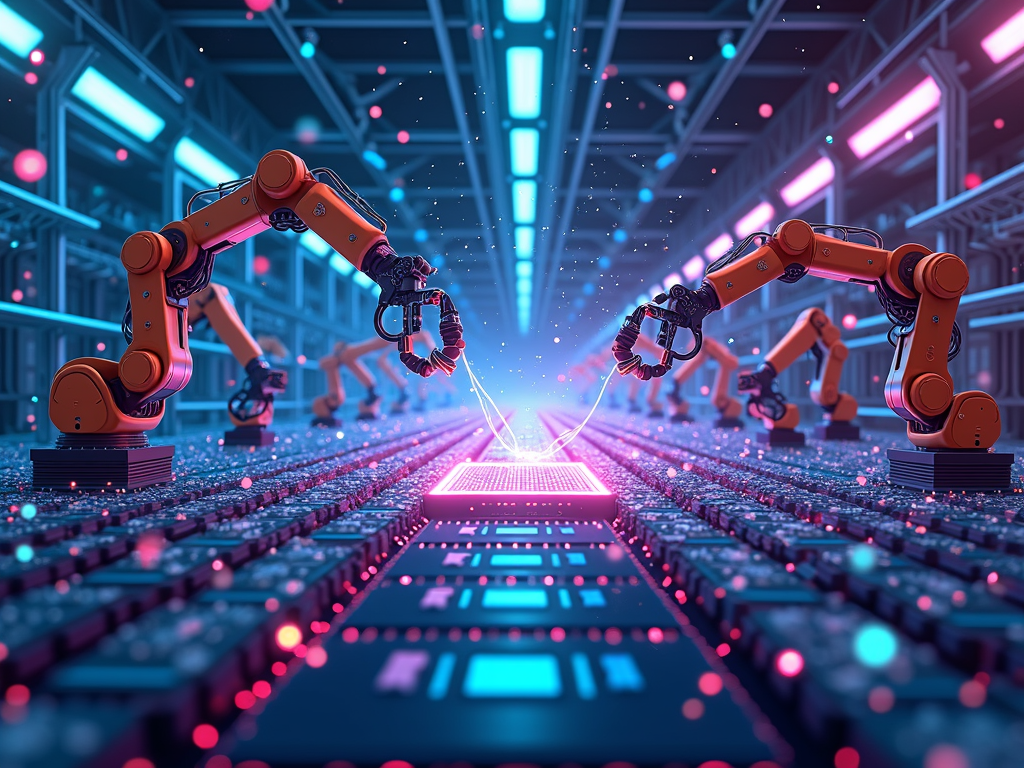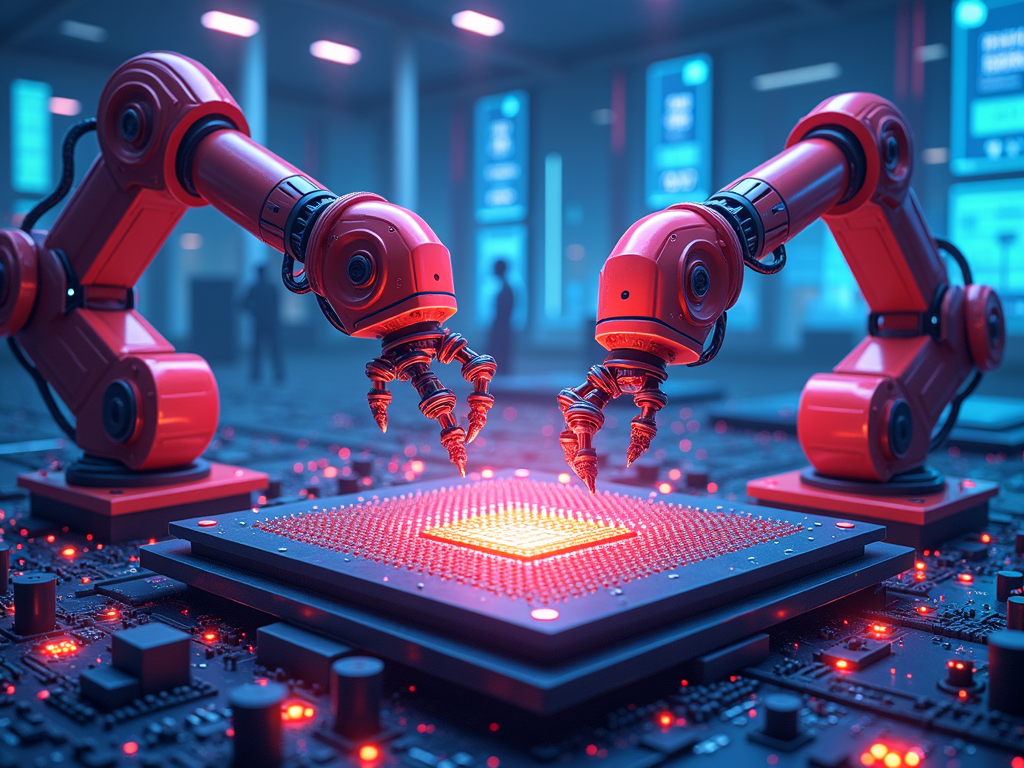Artificial Intelligence (AI) is not only reshaping industries but also serving as a catalyst for innovation and growth in both semiconductor and software companies. As investors and private stakeholders seek opportunities, understanding the role of AI in these sectors becomes crucial. This article explores how AI is driving advancements in semiconductor manufacturing, enhancing capabilities, and incentivizing growth in software development, offering insights into potential investment opportunities.
## The Convergence of AI and Semiconductors: A Technological Leap

Artificial Intelligence (AI) has become an indispensable catalyst in the evolution of semiconductor technology, significantly impacting how the industry designs, produces, and innovates new chips. The integration of AI into semiconductor advancements is driven by an urgent need for greater computing power, efficiency, and adaptability in a technology-dependent world.
**AI-Enhanced Semiconductor Design**
The design phase of semiconductors has undergone a revolution thanks to AI’s ability to effectively process and analyze vast datasets. AI algorithms facilitate the selection of optimal chip designs, drastically reducing the time needed for design iterations. This improvement not only enhances performance but also significantly reduces the margin of error, providing a robust model that lowers overall production costs. By automating complex design tasks, AI tools contribute to the development of faster, miniaturized, and more efficient chips, setting a new standard in semiconductor design.
**Revolutionizing Production with AI**
In production, AI technologies are transforming manufacturing lines, providing smart monitoring and control systems that predict equipment failures and optimize production schedules. Such forecasting minimizes downtime and improves resource allocation, promoting a leaner manufacturing process. Moreover, AI-driven quality control systems utilize image recognition to detect defects in chips with greater accuracy than traditional methods, ensuring high success rates and reducing waste.
**Specialized AI Chips: The New Frontier**
AI chips are specifically designed to enhance AI workload management, emphasizing parallel processing and reduced energy consumption. These chips are crucial for real-time applications ranging from data centers to smart devices and the Internet of Things (IoT). The industry has seen the emergence of training and inference chips, each serving distinct roles. Training chips focus on raw computing power to support the development of AI models, while inference chips are optimized for efficient real-time processing. In particular, neuromorphic computing, inspired by the human brain, introduces a paradigm shift with chips that mimic neural networks, excelling in tasks such as pattern recognition and decision-making.
**Addressing Challenges and Future Prospects**
Despite significant advancements, the semiconductor industry faces challenges such as transistor miniaturization without sacrificing performance, incorporating new materials into manufacturing, and mitigating supply chain volatility. However, the role of AI in addressing these obstacles is fundamental. By further driving automation and the innovation of custom AI chips for niche applications, AI is set to propel semiconductor technology into a new era of innovation and efficiency.
The relationship between AI and semiconductors highlights both a strategic partnership and mutual dependence, laying the groundwork for unprecedented technological innovations.
## AI: A Catalyst for Transformative Software Development

Artificial Intelligence (AI) is reshaping the landscape of software development, ushering in an era of unprecedented innovation and efficiency. By integrating AI technologies at every stage of the Software Development Life Cycle (SDLC), the industry is witnessing transformative changes in how software is conceived, created, and refined. This paradigm shift is not just a technological evolution, but a revolution in enhancing productivity and creativity within development teams.
The most immediate impact of AI is seen in how it amplifies developers’ productivity. Through powerful AI tools, tasks like code completion, refactoring, and automated testing have become significantly more efficient. Tools like GitHub Copilot and Tabnine analyze vast codebases to suggest relevant code snippets and complete repetitive coding tasks, thereby accelerating development times. Instead of being bogged down by tedious tasks, developers can now focus their efforts on solving complex problems and innovating new solutions.
Moreover, AI frameworks are revolutionizing the testing phase, traditionally a time-consuming process. AI-driven automated testing tools generate precise test cases that enhance coverage, ensuring software reliability with minimal human intervention. Predictive debugging capabilities allow AI to forecast potential coding errors, proactively offering solutions, thus reducing downtime and optimizing resource allocation.
While AI automates routine tasks, it does not aim to replace human ingenuity in software development. Rather, it empowers developers to focus more on strategic and creative endeavors. With AI handling repetitive work, developers can explore new dimensions of creativity previously constrained by resource limitations. The role of AI extends to transforming natural language specifications into design elements, surprisingly enhancing the quality of software development work by unlocking new creative potentials and refining workflows.
However, the integration of AI into development is not without challenges. Issues such as AI’s limited contextual understanding compared to nuanced problem-solving and the inherent security risks associated with AI-trained code present significant obstacles. Moreover, AI-based solutions must navigate the complexities of legal compliance, particularly concerning the use of proprietary or open-source datasets.
As the field continues to evolve, the emergence of custom AI agents tailored to specific business processes promises further advancements. These agents will customize and improve code quality, predictive testing, and problem prevention, solidifying AI’s role as a catalyst for innovation. AI’s generative capabilities are resetting the benchmarks for quality and efficiency in the SDLC, heralding a future where AI is indispensable in the software development process.
Ultimately, AI not only accelerates development but also enriches the developer experience. By automating tedious tasks, AI improves not only the pleasure of coding but also facilitates rapid learning and upskilling. Developers can quickly adapt to new programming languages and frameworks, supported by real-time AI-driven examples and insights. As this relationship between AI and software development deepens, continuous evolution is promised, leading to an era marked by greater creativity, efficiency, and technological growth.